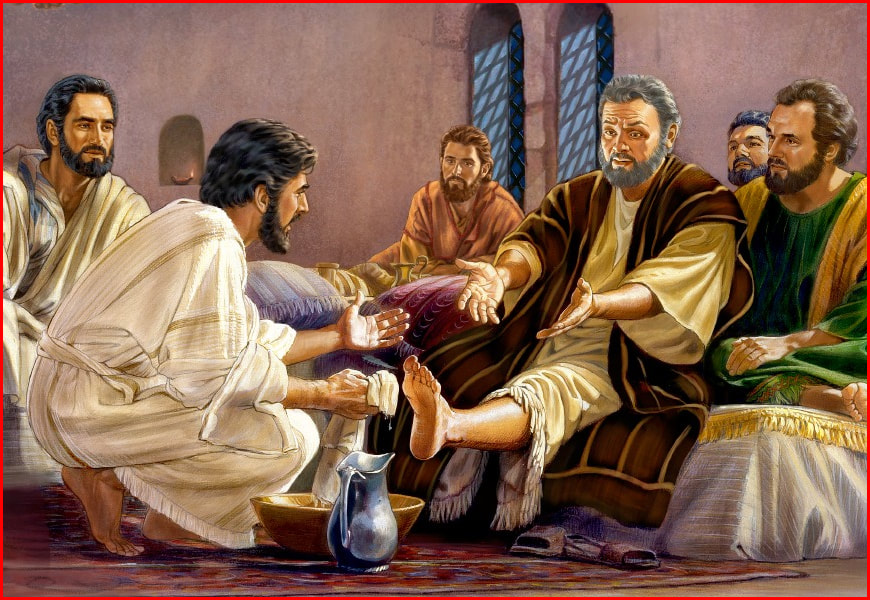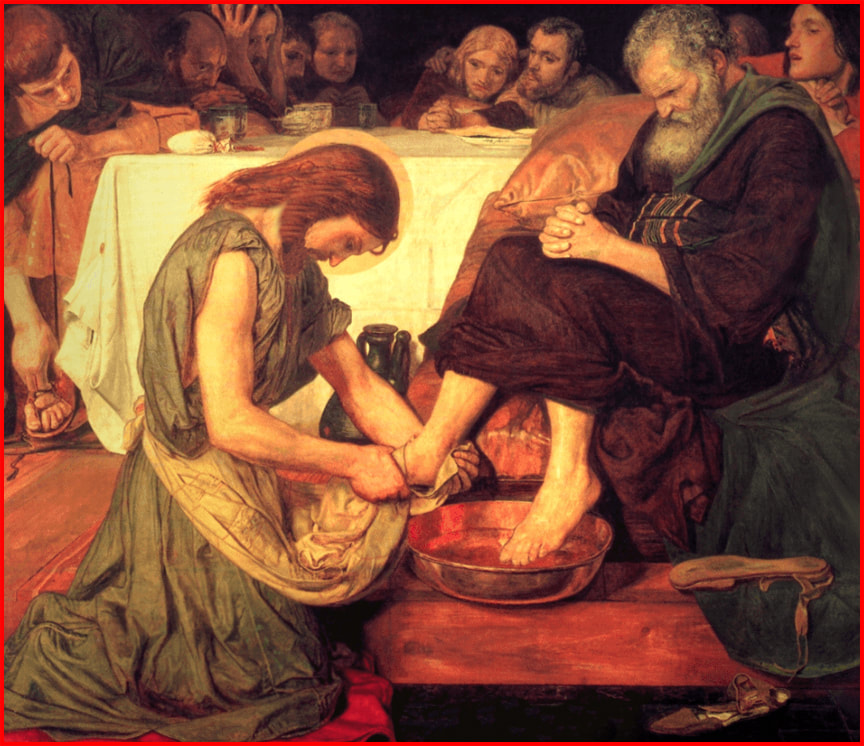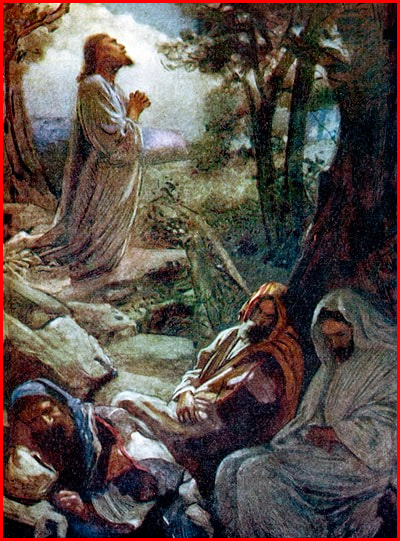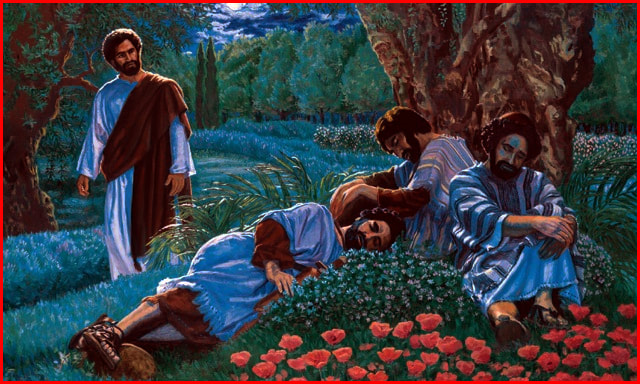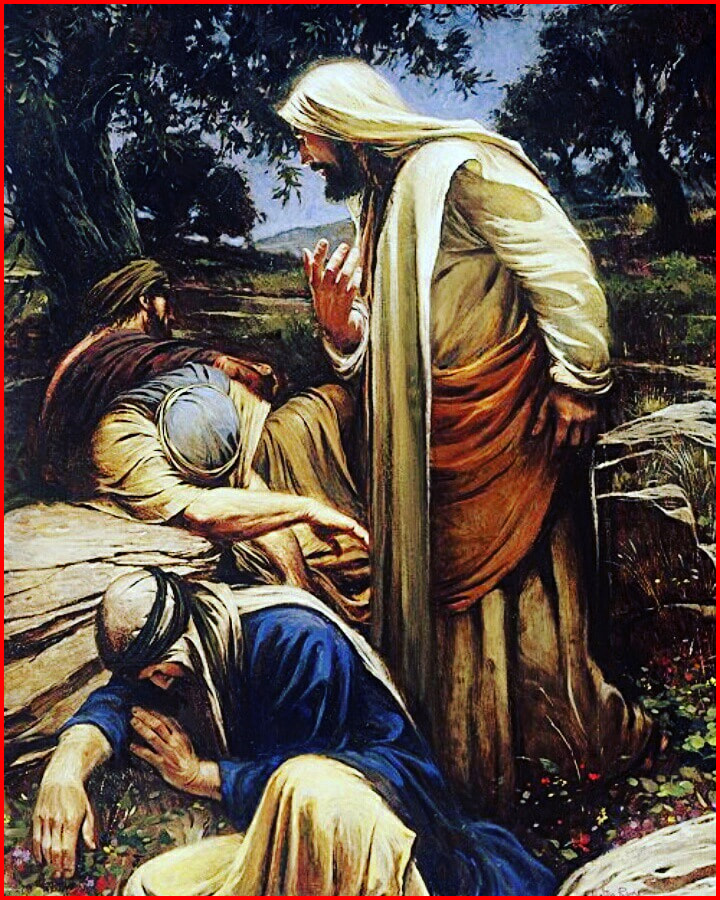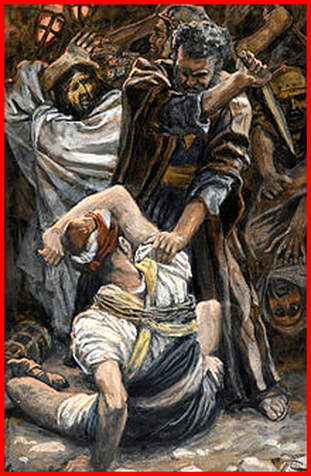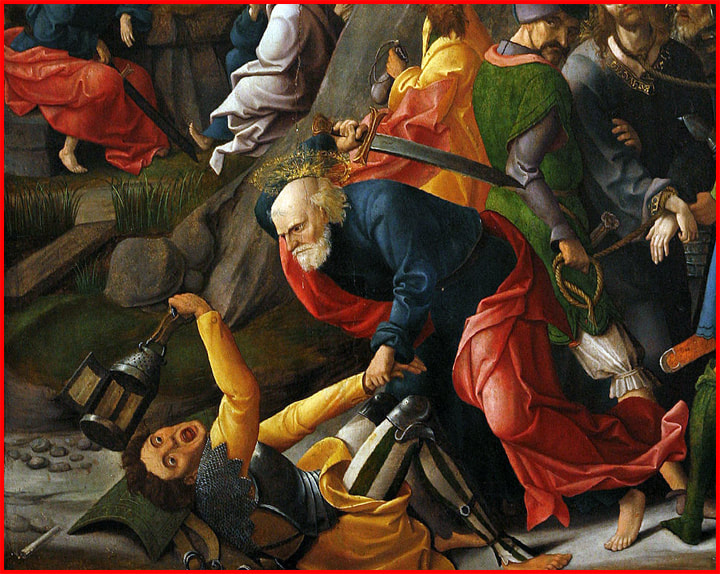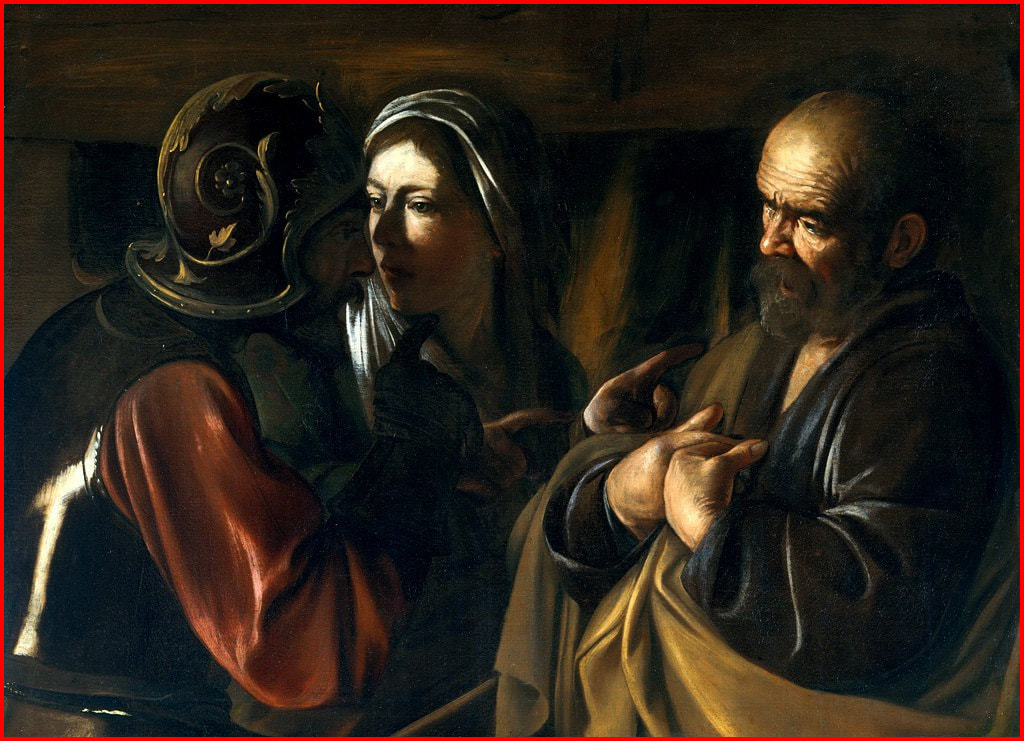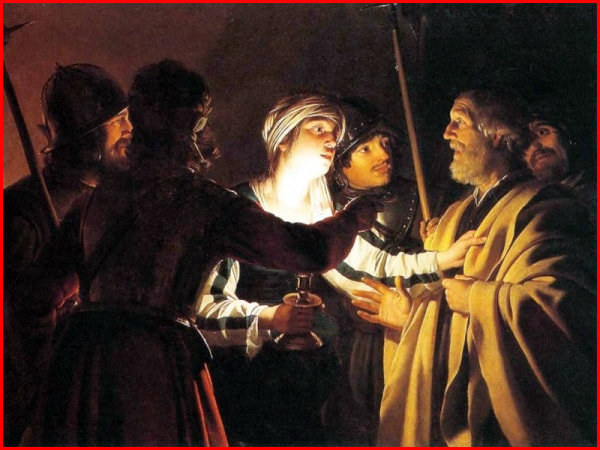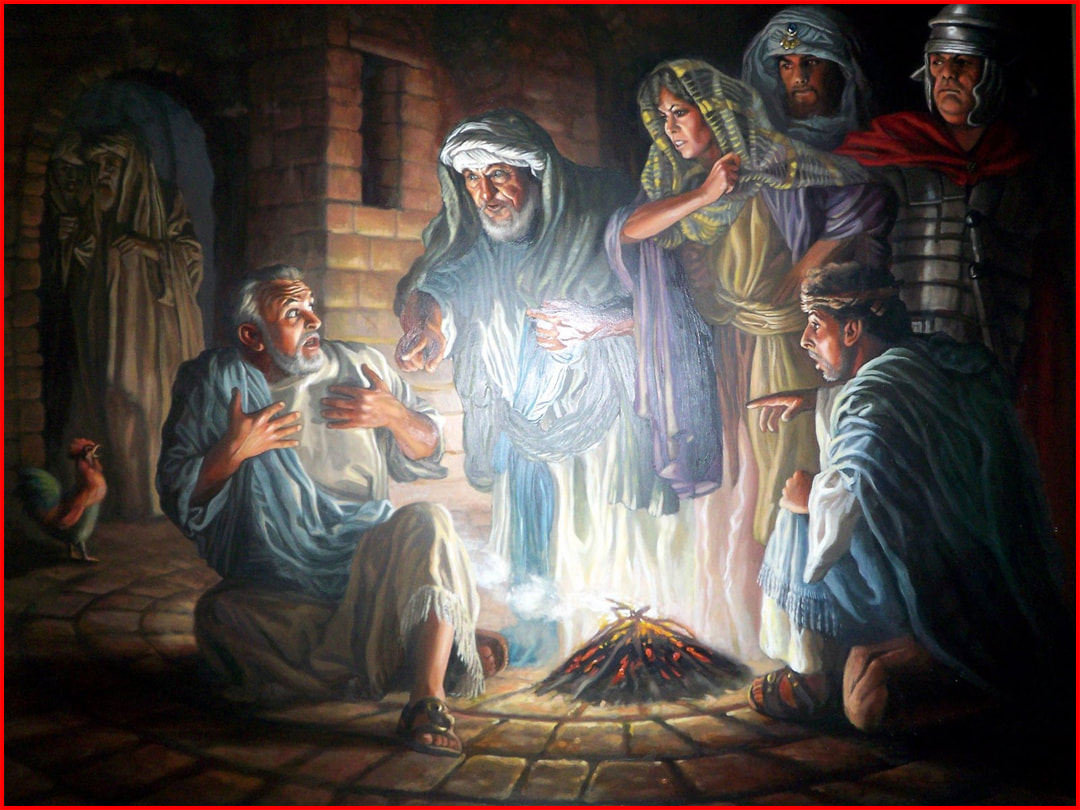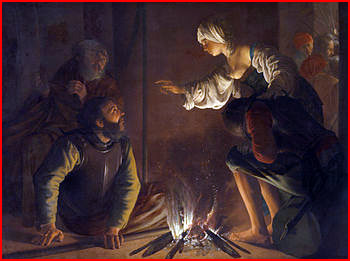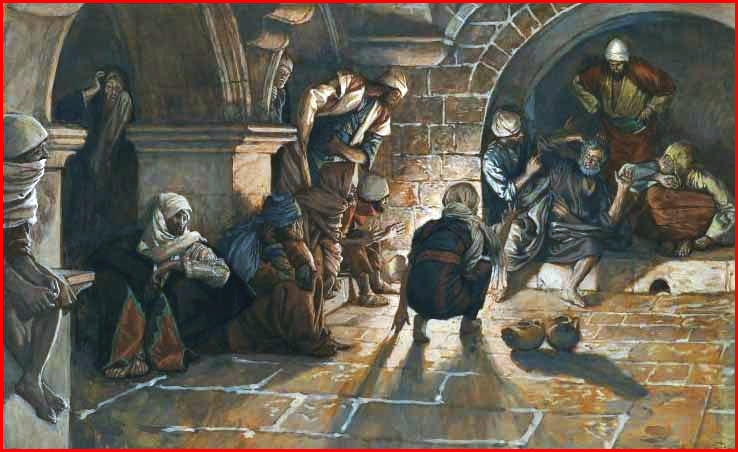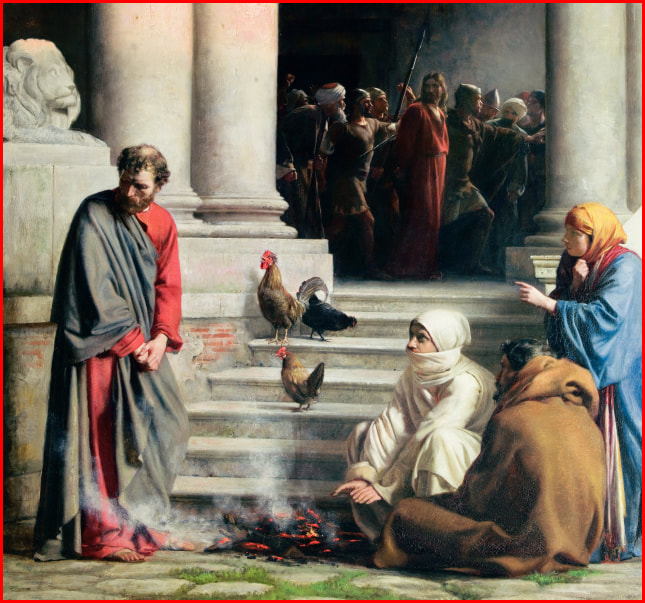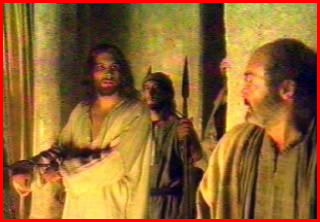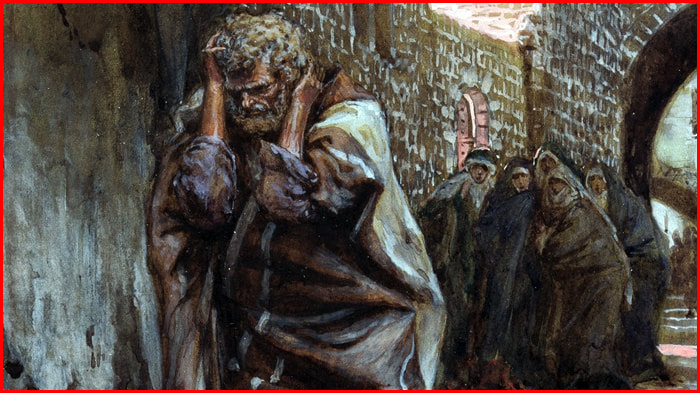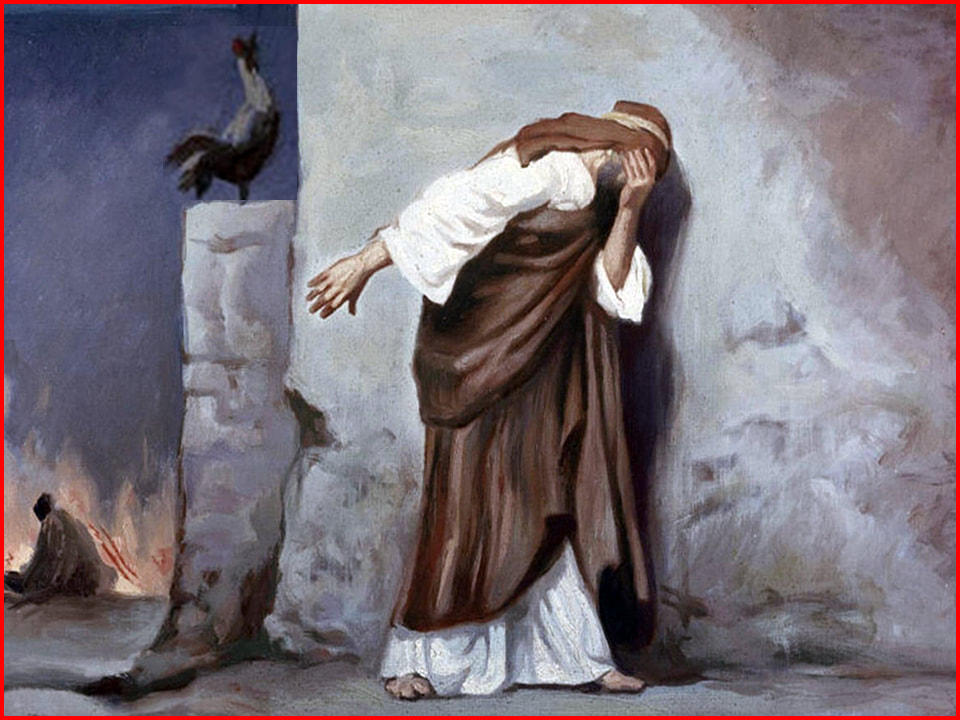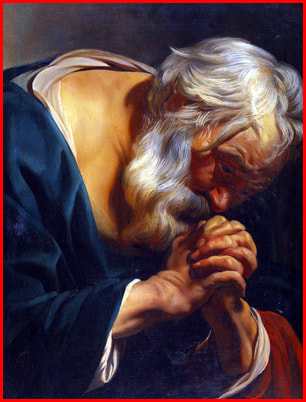| Devotion to Our Lady |
|
- Homepage
-
Daily Thoughts
- 2023 October Daily Thoughts
- Daily Thoughts Lent 2020
- Daily Thoughts for Advent 2019
- Daily Thoughts for October 2019
- Daily Thoughts for September 2019
- Daily Thoughts for August 2019
- Daily Thoughts for July
- Daily Thoughts for June
- Daily Thoughts for Easter 2019
- Daily Thoughts for Lent 2019
- Daily Thoughts for Christmas
- Daily Thoughts Easter 2022
- Sacred Heart
- Holy Ghost
-
Spiritual Life
- Holy Mass Explained
- First Friday Devotions
- First Saturday Devotions
- The Mercy of God
- Vocations
- The Path Everyone Must Walk >
- Gift of Failure
- Halloween or Hell-O-Ween?
- Ignatian Spiritual Exercises >
- Meditation is Soul-Saving
- Spiritual Communion
- Miraculous Medal
- Enrollment in Miraculous Medal
- St. Benedict Medal
- Holy Water
- Advice on Prayer
- Your Daily Mary
-
Prayers
- September Devotions
- Seven Sorrows of Our Lady
-
Novenas
>
- NV-Help of Christians
- NV-Nativity of Our Lady
- NV-Seven Sorrows
- NV- Sorrowful Heart
- NV-Pope St Pius X
- NV-La Salette
- NV-St Michael Archangel
- NV-Immaculate Heart
- NV-Assumption
- NV-Novena for Fathers
- NV-Novena for Your Mother
- NV-St Raphael Archangel
- NV-Souls in Purgatory
- NV-All Saints Day
- NV-Christ the King
- NV-Divine Motherhood
- NV-Guardian Angels
- NV-Rosary
- NV-Mirac Med
- NV- Imm Conc
- NV - Guadalupe
- NV - Nativity of Jesus
- NV-Epiphany
- NV-OL Good Success
- NV-Lourdes
- NV-St Patrick
- NV-St Joseph
- NV-Annunciation
- NV-St Louis de Montfort
- NV-OL Good Counsel
- NV-Last Supper
- NV-Passion
- NV-Pentecost
- NV-Ascension
- NV-Sacred Heart
- NV-Sacred Heart & Perpetual Help
- NV-Corpus Christi
- NV-OL of Perpetual Help
- NV-Queenship BVM
- NV-OL of Mount Carmel
- NV-St Mary Magdalen
- NV- Im Hrt
- August Devotions to IHM
- Immaculate Heart of Mary
- Litany of Dependence
- Prayers to St Mary Magdalen
- Prayers in Times of Sickness Disease & Danger
- Holy Souls in Purgatory
- Meditations on the Litany of Our Lady
- Special Feast Days
- Prayers to Mary (Mon-Sun)
- Litanies to Our Lady >
- Various & Special Needs
- Our Lady of the Rosary
- Our Lady of Mt. Carmel
- Our Lady of Perpetual Help
- Our Lady of Guadalupe
- Other titles of Our Lady
-
Rosary
- Downloads
- Consecration
- Easter Season
-
Holy Week
- Last Seven Words of Jesus >
- Characters of Passion >
- The Last Days of Christ
- Before Palm Sunday
- Palm Sunday
- Monday in Holy Week
- Tuesday in Holy Week
- Wednesday in Holy Week
- Holy Thursday (Last Supper)
- Holy Thursday (Agony & Arrest)
- Night Vigil with Christ
- Good Friday (Pilate & Herod)
- Good Friday (Way of Cross & Crucifixion)
- Saturday in Holy Week
-
Lent
- Ideas for Lent
- Daily Lenten Planner
- Daily Lenten Liturgy
- From Cold to Hot
- Lent with Aquinas
- Lent with Dom Gueranger
- Virtues for Lent
- History of Penance
- How Expensive is Sin?
- Confession of Sins
- Letter to Friends of the Cross
- Sermons for Lent
- Stations of the Cross >
- Lenten Prayers
- 7 Penitential Psalms
- Lenten Psalms SUN
- Lenten Psalms MON
- Lenten Psalms TUE
- Lenten Psalms WED
- Lenten Psalms THU
- Lenten Psalms FRI
- Lenten Psalms SAT
- Lenten Laughs
- Septuagesima
-
Christmas
- Epiphany Explained
- Suggestions for Christmas
- Food For Thought
- Christmas with Aquinas
- Christmas with Dom Gueranger
- Christmas Prayers
- Candles & Candlemas
- Christmas Sermons
- Christmas Prayers SUN
- Christmas Prayers MON
- Christmas Prayers TUE
- Christmas Prayers WED
- Christmas Prayers THU
- Christmas Prayers FRI
- Christmas Prayers SAT
- Twelve Days of Christmas >
-
Advent Journey
- Purgatory
- Christ the King
- Legion of Mary
- Scapular
-
Saints
-
Martyrs for the Faith
>
- Your Daily Martyr >
- All 365 Days of Martyrs
- Cristeros
- St Valentine & Valentine's Day
- Martyrs--Thomas Becket
- Martyrs--John the Apostle
- Holy Machabees
- Age of Martyrdom
- Carmelites of Compiegne
- Martyrs--Peter & Paul
- Martyrs--John the Baptist
- Martyrs--Andrew
- Martyrs--James the Great
- Martyrs--North American
- Martyrs--Seven Holy Sleepers
- Martyrs--Afra
- School of Martyrdom
- Martyrs--Christina
- Desert Saints >
- Saints for Sinners >
- Saints of Mary >
- History of All Saints Day
-
Martyrs for the Faith
>
- Precious Blood
- Synod 2023
-
Catechism
- Catechism Lesson 1
- Catechism Lesson 2
- Catechism Lesson 3
- Catechism Lesson 4
- Catechism Lesson 5
- Catechism Lesson 6
- Catechism Lesson 7
- Catechism Lesson 8
- Catechism Lesson 9
- Catechism Lesson 10
- Catechism Lesson 11
- Catechism Lesson 12
- Catechism Lesson 13
- Catechism Lesson 14
- Catechism Lesson 15
- Catechism Lesson 16
- Catechism Lesson 17
- Catechism Lesson 18
- Catechism Lesson 19
- Catechism Lesson 20
- Catechism Lesson 21
- Catechism Lesson 22
- Bible Study
-
Calendar
- Miracles
- Apparitions
- Shrines
- Prophecies
- Angels Homepage
- Hell
-
Church Crisis
- Conspiracy Theories
- Amazon Synod 2019 >
- Liberalism & Modernism
- Modernism--Encyclical Pascendi
- Modernism & Children
- Modernism--Documents
- The Francis Pages
- Church Enemies on Francis
- Francis Quotes
- Amoris Laetitia Critique
- Danger of Ignorance (Pius X)
- Restore all In Christ (Pius X)
- Catholic Action (Pius X)
- Another TITANIC Disaster?
- The "Errors of Russia"
- CRISIS PRAYERS
- Election Novena 2024
- The Anger Room
- War Zone
- Life of Mary
- Spiritual Gym
- Stupidity
- Coronavirus and Catholicism
- History & Facts
- Books
- Catholic Family
- Children
- Daily Quiz
-
Novena Church & Pope
- Day 01 Church-Pope Novena
- Day 02 Church-Pope Novena
- Day 03 Church-Pope Novena
- Day 04 Church-Pope Novena
- Day 05 Church-Pope Novena
- Day 06 Church-Pope Novena
- Day 07 Church-Pope Novena
- Day 08 Church-Pope Novena
- Day 09 Church-Pope Novena
- Day 10 Church-Pope Novena
- Day 11 Church-Pope Novena
- Day 12 Church-Pope Novena
- Day 13 Church-Pope Novena
- Day 14 Church-Pope Novena
- Day 15 Church-Pope Novena
- Day 16 Church-Pope Novena
- Day 17 Church-Pope Novena
- Day 18 Church-Pope Novena
- Day 19 Church-Pope Novena
- Day 20 Church-Pope Novena
- Day 21 Church-Pope Novena
- Day 22 Church-Pope Novena
- Day 23 Church-Pope Novena
- Day 24 Church-Pope Novena
- Day 25 Church-Pope Novena
- Day 26 Church-Pope Novena
- Day 27 Church-Pope Novena
- Day 28 Church-Pope Novena
- Day 29 Church-Pope Novena
- Day 30 Church-Pope Novena
- Day 31 Church-Pope Novena
- Day 32 Church-Pope Novena
- Day 33 Church-Pope Novena
- Day 34 Church-Pope Novena
- Day 35 Church-Pope Novena
- Day 36 Church-Pope Novena
- Day 37 Church-Pope Novena
- Day 38 Church-Pope Novena
- Day 39 Church-Pope Novena
- Day 40 Church-Pope Novena
- Day 41 Church-Pope Novena
- Day 42 Church-Pope Novena
- Day 43 Church-Pope Novena
- Day 44 Church-Pope Novena
- Day 45 Church-Pope Novena
- Day 46 Church-Pope Novena
- Day 47 Church-Pope Novena
- Day 48 Church-Pope Novena
- Day 49 Church-Pope Novena
- Day 50 Church-Pope Novena
- Day 51 Church-Pope Novena
- Day 52 Church-Pope Novena
- Day 53 Church-Pope Novena
- Day 54 Church-Pope Novena
- Penance Novena
- Daily WeAtheR Forecast
The Greatest and Most Important Week in the Church's Liturgical Year
CLICK ON ANY HOLY WEEK LINK BELOW
Also lots of LENTEN & HOLY WEEK DOWNLOADS on the downloads page (click here)
LITURGICAL PRAYERS FOR EACH DAY OF THE WEEK DURING LENT
| Sundays of Lent | Mondays of Lent | Tuesdays of Lent | Wednesdays of Lent | Thursdays of Lent | Fridays of Lent | Saturdays of Lent |
HOLY WEEK PAGES
| Daily Thoughts | Holy Week Main Page | Before Palm Sunday | Palm Sunday | Last Days of Christ |
| Holy Thursday Last Supper Novena | Good Friday Passion Novena |
| Monday of Holy Week | Tuesday of Holy Week | Wednesday of Holy Week | Holy Thursday (Last Supper) | Holy Thursday (Agony & Arrest) |
| Night Vigil With Christ | Good Friday (Pilate & Herod) | Good Friday (Way of Cross & Crucifixion) | Holy Saturday |
THE CHIEF CHARACTERS OF THE PASSION
| Characters of the Passion Mainpage | The Sanhedrin | Pharisees | Scribes | Saducees | Jewish Crowd | Roman Rulers |
| Judas | Annas & Caiphas | Pontius Pilate | Herod | Barabbas | Dismas the Good Thief | St. Peter | St. John | Mary Magdalen |
THE FOURTEEN STATIONS OF THE CROSS
| Introduction to the Stations of the Cross | Short Version of the Stations of the Cross (all 14 on one page) | 1st Station | 2nd Station | 3rd Station |
| 4th Station | 5th Station | 6th Station | 7th Station | 8th Station | 9th Station | 10th Station | 11th Station | 12th Station | 13th Station | 14th Station |
THE LAST SEVEN WORDS OF JESUS FROM THE CROSS
| Seven Last Words on the Cross (Introduction) | The 1st Word on the Cross | The 2nd Word on the Cross | The 3rd Word on the Cross |
| The 4th Word on the Cross | The 5th Word on the Cross | The 6th Word on the Cross | The 7th Word on the Cross |
PRAYERS AND DEVOTIONS TO THE SEVEN SORROWS OF OUR LADY
| Seven Sorrows Meditations | Short Prayers & Short Seven Sorrows Rosary | Longer Seven Sorrows Rosary |
| 1st Sorrow of Our Lady | 2nd Sorrow of Our Lady | 3rd Sorrow of Our Lady | 4th Sorrow of Our Lady |
| 5th Sorrow of Our Lady | 6th Sorrow of Our Lady | 7th Sorrow of Our Lady |
| Novena #1 to the Sorrowful Heart of Mary | Novena #2 to the Sorrowful Heart of Mary |
LENTEN PAGES
| ASH WEDNESDAY COUNTDOWN | LENT (MAIN PAGE) | DAILY THOUGHTS | DAILY LENTEN LITURGY | DAILY LENTEN PLANNER |
| LENTEN PRAYERS | THE 7 PENITENTIAL PSALMS | IDEAS FOR PENANCE | LENT WITH AQUINAS | LENT WITH DOM GUERANGER |
| HISTORY OF PENANCE | PENANCES OF THE SAINTS | HOW EXPENSIVE IS SIN? | CONFESSION OF SINS | ARE FEW SOULS SAVED? |
| VIRTUES FOR LENT | FROM COLD TO HOT | LENTEN LAUGHS | SERMONS FOR LENT | LETTER TO FRIENDS OF THE CROSS |
| STATIONS OF THE CROSS (INDIVIDUALLY) | ALL 14 STATIONS OF THE CROSS |
| THE LAST DAYS OF CHRIST | SPECIAL HOLY WEEK PAGES |
CLICK ON ANY HOLY WEEK LINK BELOW
Also lots of LENTEN & HOLY WEEK DOWNLOADS on the downloads page (click here)
LITURGICAL PRAYERS FOR EACH DAY OF THE WEEK DURING LENT
| Sundays of Lent | Mondays of Lent | Tuesdays of Lent | Wednesdays of Lent | Thursdays of Lent | Fridays of Lent | Saturdays of Lent |
HOLY WEEK PAGES
| Daily Thoughts | Holy Week Main Page | Before Palm Sunday | Palm Sunday | Last Days of Christ |
| Holy Thursday Last Supper Novena | Good Friday Passion Novena |
| Monday of Holy Week | Tuesday of Holy Week | Wednesday of Holy Week | Holy Thursday (Last Supper) | Holy Thursday (Agony & Arrest) |
| Night Vigil With Christ | Good Friday (Pilate & Herod) | Good Friday (Way of Cross & Crucifixion) | Holy Saturday |
THE CHIEF CHARACTERS OF THE PASSION
| Characters of the Passion Mainpage | The Sanhedrin | Pharisees | Scribes | Saducees | Jewish Crowd | Roman Rulers |
| Judas | Annas & Caiphas | Pontius Pilate | Herod | Barabbas | Dismas the Good Thief | St. Peter | St. John | Mary Magdalen |
THE FOURTEEN STATIONS OF THE CROSS
| Introduction to the Stations of the Cross | Short Version of the Stations of the Cross (all 14 on one page) | 1st Station | 2nd Station | 3rd Station |
| 4th Station | 5th Station | 6th Station | 7th Station | 8th Station | 9th Station | 10th Station | 11th Station | 12th Station | 13th Station | 14th Station |
THE LAST SEVEN WORDS OF JESUS FROM THE CROSS
| Seven Last Words on the Cross (Introduction) | The 1st Word on the Cross | The 2nd Word on the Cross | The 3rd Word on the Cross |
| The 4th Word on the Cross | The 5th Word on the Cross | The 6th Word on the Cross | The 7th Word on the Cross |
PRAYERS AND DEVOTIONS TO THE SEVEN SORROWS OF OUR LADY
| Seven Sorrows Meditations | Short Prayers & Short Seven Sorrows Rosary | Longer Seven Sorrows Rosary |
| 1st Sorrow of Our Lady | 2nd Sorrow of Our Lady | 3rd Sorrow of Our Lady | 4th Sorrow of Our Lady |
| 5th Sorrow of Our Lady | 6th Sorrow of Our Lady | 7th Sorrow of Our Lady |
| Novena #1 to the Sorrowful Heart of Mary | Novena #2 to the Sorrowful Heart of Mary |
LENTEN PAGES
| ASH WEDNESDAY COUNTDOWN | LENT (MAIN PAGE) | DAILY THOUGHTS | DAILY LENTEN LITURGY | DAILY LENTEN PLANNER |
| LENTEN PRAYERS | THE 7 PENITENTIAL PSALMS | IDEAS FOR PENANCE | LENT WITH AQUINAS | LENT WITH DOM GUERANGER |
| HISTORY OF PENANCE | PENANCES OF THE SAINTS | HOW EXPENSIVE IS SIN? | CONFESSION OF SINS | ARE FEW SOULS SAVED? |
| VIRTUES FOR LENT | FROM COLD TO HOT | LENTEN LAUGHS | SERMONS FOR LENT | LETTER TO FRIENDS OF THE CROSS |
| STATIONS OF THE CROSS (INDIVIDUALLY) | ALL 14 STATIONS OF THE CROSS |
| THE LAST DAYS OF CHRIST | SPECIAL HOLY WEEK PAGES |
ST. PETER DURING THE PASSION OF CHRIST
This article is currently being written. Sections will be posted as they are completed. Please check back later.
This article is currently being written. Sections will be posted as they are completed. Please check back later.
|
A Dramatic Lesson
The most interesting drama in all the world is the drama of the human soul. Were it not endowed with freedom, it might go out to war and enterprise alone and unheeded; but master of its choice, unlike the sun and stones, it can use time and things to decide its destiny, its eternity and its judgment. Though there are many phases to these dramas, perhaps the most interesting of them all is the psychology of a fall and resurrection. More concretely, how do some souls lose their Faith, and by what steps do they later on recover it? The answer to such questions is to be found in the story of the Apostle Peter, whose name appears first in the Gospel narrative, and who might appropriately be called “The Fisherman Philosopher,” for he asked Divine Wisdom more questions than any other of His followers. For example, “To whom shall we go?” “Whither goest Thou?” “Why cannot I follow Thee?” “What shall this man do?” To this searching intellectualist of Galilee, who was born Simon and whose name was changed to Peter, and who, from the bitterness of his spirit, cried out: “Depart from me, O Lord, for I am a sinful man!”―we go to study the steps by which he fell and the stages by which he returned. THE WAY DOWN There seem to have been five stages in Peter’s fall: ► First, neglect of prayer. ► Second, substitution of action for prayer. ► Third, lukewarmness. ► Fourth, the satisfaction of material wants, feelings and emotions. ► Fifth, human respect. (1) Neglect of Prayer No soul ever fell away from God without giving up prayer. Prayer is that which establishes contact with Divine Power and opens the invisible resources of heaven. However dark the way, when we pray, temptation can never master us. The first step downward in the average soul is the giving up of the practice of prayer, the breaking of the circuit with Divinity and the proclamation of one’s own self‑sufficiency. The night that Our Blessed Lord went out under the light of a full moon into the Garden of Gethsemane to crimson the olive roots with His own blood for the redemption of men, He turned to His disciples and said, “Watch ye, and pray that ye enter not into temptation. The spirit indeed is willing, but the flesh weak” (Matthew 26:41) . Withdrawing from these three disciples about as far as a man could throw a stone―how significant a way to measure distance the night one goes to death―He prayed to His Heavenly Father ... “My Father, if it be possible, let this chalice pass from Me. Nevertheless not as I will, but as Thou wilt” (Matthew 26:39). When Our Blessed Lord came back the last time to visit His disciples, He found them asleep. A woman will watch not one hour or one night but day after, day and night after night in the presence of a peril threatening her child. These men slept. If they could sleep on such an occasion, it was due to the fact that they bad no adequate conception of the crisis through which Our Savior was passing, no consciousness of the tragedy that was already upon them. Finding them asleep, Our Blessed Lord spoke to Peter and said, “. . . What? Could you not watch one hour with me?” (Matthew 26:40). Peter had given up both watching and praying. The next stage was: (2) The Substitution of Action for Prayer Most souls still feeling the necessity of doing something for God and the Church turn to the solace of activity. Instead of going from prayer to action, they neglect the prayer and become busy about many things. It is so easy to think we are doing God’s work when we are only in motion or being fussy. Peter is no exception. In the turmoil of the arrest of Our Blessed Lord which followed, Peter, who had already been armed with two swords, allows his usual impetuosity to get the better of him. Slashing out rather recklessly at the armed gang, what he strikes is not a soldier at all, but a slave of the High Priest. As a swordsman Peter was a good fisherman. The slave steps aside, and the blow aimed at the crown of his head merely cuts off his ear. Our Blessed Lord restored, the ear by a miracle, and then turning to Peter said: “. . . Put up again thy sword into its place; for all that take the sword shall perish with the sword” (Matthew 26:52). Divinity has no need of it. He could summon twelve legions of angels to His aid if He wished. The Church must never fight with the weapons of the world. The Father had offered the Son the cup, and no one could hinder His drinking it. But Peter, giving up the habit of prayer, substituted violence toward others, and all tact was lost as devotion to a cause became zeal without knowledge. Far better it would be to take a few hours off active life and spend it in communion with God, than to be busy about many things while neglecting the one thing that is necessary for peace and happiness. No such activity is a substitute for watching and praying an hour. (3) Lukewarmness Experience soon proves that religious activity without prayer soon degenerates into indifference. At this stage souls become indifferent. They believe one can be too religious, too zealous, or “spend too much time in Church.” Peter exemplifies this truth. A few hours later, Our Blessed Lord is led before His Judges―and one is almost inclined to say: “May God forgive us for calling them judges.” As that sad procession moves on in the unutterable loneliness where the God‑man freely subjects Himself to the evil darts of men, the Gospel records, “And Peter followed Him afar off.” He had given up prayer, then action, and now he keeps his distance. Only his eyes remain on the Master. How quickly the insincerity of action without prayer proves itself! He who was brave enough to draw a sword a few hours before now strays on behind. Christ, Who once was the dominating passion of our life, now becomes incidental in religion. We still linger as from force of habit‑or perhaps even from remorse of conscience‑in the footsteps of the Master, but out of the range of both His eyes and His voice. It is in such moments that souls say, “God has forgotten me,” when the truth is that it is not God who leaves us, it is we who stray on behind. (4) Satisfaction of Material Wants, Feelings and Emotions Once the divine fades in life, the material begins to assert itself. The excessive dedication to luxury and refinement is always an indication of the inner poverty of the spirit. When the treasure is within, there is no need of those outer treasures which rust consumes, moths eat, and thieves break through and steal. When the inner beauty is gone, we need luxuries to clothe our nakedness. It is only natural, therefore, to find that in the next stage of his declension, Peter should be satisfying his body. He does not go into the court room. He remains outside with the servants, and in the expressive language of Sacred Scripture: “. . . when they had kindled a fire in the midst of the hall, and were sitting about it, Peter was in the midst of them” (Luke 22:55) There is a process going on in Peter, but it is hardly progress for it is a downward movement‑walking, standing, sitting. That is exactly what Peter did. Walking: “He followed Him afar off.” Standing: He went into the court and stood among the people. Sitting: He sat by the fire that the enemies of Christ bad built. Luxury had taken the place of fidelity. Never before was any man so cold before a fire! (5) Human Respect The last stage in the fall is human respect, when we deny our Faith or are ashamed of it under ridicule or scorn. Worldly religions will get on well with the world, but not a divine. As Our Lord warned: “And when they shall persecute you in this city, flee into another. Amen I say to you, you shall not finish all the cities of Israel, till the Son of man come” (Matthew 10: 2 3) As the blaze of that fire lighted up the face of Peter, it was possible for bystanders and those who came into the court to see his face. At that very moment when Our Blessed Lord in court was taking an oath proclaiming His Divinity, Peter was taking an oath, too, not to reaffirm that Christ was the Son of the Living God, but rather to deny it. There was the clamor of officers and the saucy laughter of a servant maid, who said: “Thou also wast with Jesus of Nazareth!” Peter denied it. Then, another maidservant said that he was one of them, but he denied it again, saying: “Woman, I know him not” (Luke 22:57). Perhaps an hour passed, and then one of the men said to him: “Surely thou art one of them; for thou art also a Galilean” (Mark 14:70) “. . . for even thy speech doth discover thee” (Matthew 26:73). Peter became angry at their repeated affirmations and with an atavistic throwback to his fisherman days when his nets became tangled in Galilean waters, he cursed and swore again, saying: “I know not this Man of whom you speak!” (Mark 14:71) Human respect had gotten the better of him. How often others know what we ought to do, even when we have forgotten. How touchy are those consciences that have abandoned their God! How sensitive they are to even the memory that they once had the Faith! Many a time I have heard such souls say, “Do not talk about it! I want to forget it.” But we can never forget‑‑‑even our speech betrays that we had been with the Galilean. THE WAY BACK If there be the steps away from the Faith, what are the steps back to its embrace? They are: ► First, Disillusionment ► Second, Response to grace ► Third, Amendment ► Fourth, Sorrow (1) Disillusionment Since pride is a capital sin, it follows that a first condition of conversion is humility: the ego must decrease, God must increase. This humiliation most often comes by a profound realization that sin does not pay, that it never keeps its promises, that just as a violation of the laws of health produces sickness, so the violation of the laws of God produces unhappiness. This is signified in Peter’s case by the fulfilment of a prophecy made by Our Lord to Peter the night of the Last Supper. Having warned His Apostles that they would be scandalized in Him that night, Peter boasted: “I will lay down my life for Thee!” (John 13:37). And Our Lord answered: “Wilt thou lay down thy life for Me? Amen, amen I say to thee, the cock shall not crow till thou deny Me thrice!” (John 33:38). A few hours later, at the very moment that Peter cursed and swore that he knew, not Christ, there came through the halls of the outer chambers of Caiphas’s court, the clear and unmistakable crowing of a cock. Even nature is on God’s side. We may abuse it in our sins, but in the end it will abuse us. How right was one author when he characterized nature as having a “traitorous trueness, a loyal deceit; in fickleness to me, in loyalty to Him.” The crowing of the cock was such a childish thing. But God can use the most insignificant things in the world as the channel of His grace―the vow of a child, a word over the radio, the song of a sparrow. He will even press into the business of conversation the crowing of a cock in the dawning of the morning. A soul can come to God by a series of disgusts. (2) Response to Grace The next step in the return to God after the awakening of conscience through the disillusionment of sin is on God’s part. As soon as we empty ourselves, or are disillusioned, He comes to fill the void. “No man cometh to the Father but by Me” (John 14:6). And St. Luke tells us: “And the Lord turning looked on Peter” (Luke 22:61). As sin is an aversion to God, grace is the conversion to God. Our Lord does not say: “I told you, you would fall!” He does not desert us though we desert Him. He turns, once we know we are sinners. God never gives us up. The very word used here to describe the look of Our Lord is the same word used the first time Our Lord met Peter―the meaning being that “He looked through” Peter. Peter is recalled to the sweet beginnings of His grace and vocation. Judas received the lips to recall him to fellowship. Peter received a look with eyes that see us, not as our neighbors see us, not as we see ourselves, but as we really are. They were the eyes of a wounded friend, the look of a wounded Christ. The language of those eyes we shall never understand. (3) Amendment As sin begins with the abandonment of mortification, so conversion implies return to it. The King in Hamlet asked: “Can one be forgiven and retain the offense?” There are such things as occasions of sin, namely, those persons, places, and circumstances which dry rot the soul. Peter’s conversion would not be complete unless he left that arena where maidservants, slaves, and human respect combined to make him deny the Master. No longer will he warm himself by fires, nor sit passively while his judge is judged. The Scripture records his amendment or purgation in the simple words, “And going forth.” All the trappings of sin, the ill‑gotten goods, the human respect he won, all these are now trampled underfoot, as “he goes out.” (4) Sorrow But this leaving of the tabernacles of sin would not be enough were there not sorrow. Some leave sin only because they find it disgusting. There is no real conversion until that sin is related to an offense against the Person of God. “Against Thee have I sinned,” says Scripture, not against “Space‑time,” or the “Cosmical Universe,” or the “Powers Beyond.” Given a sorrow that regrets offending God because He is all good and deserving of all our love, and you have salvation. Fittingly, therefore, do the Evangelists write: “And Peter going out, wept bitterly” (Luke 22:62). His heart was broken into a thousand pieces, and his eyes that looked into the eyes of Christ, now turn into fountains. Moses struck a rock, and water came forth. Christ looked on a rock, and tears came forth. Tradition has it that Peter wept so much for his‑ sins that his cheeks were furrowed with their penitential streams. Upon those tears the face of the Light of the World rises, and through them comes the rainbow of hope, assuring to all souls that never again will a heart be destroyed by flood of sin so long as it turns to Him Who is the Ark of Salvation, the love of the Universe. LESSON LEARNED? This closes the story of the most human of humans in the Gospels, who one moment is on the top of a sea-wave walking and the next moment beneath it drowning and shrieking: “Lord, save me!” One instant he says he will die with Our Lord; an hour later he denies that he knows the One for Whom he would die! Who is there who has not within himself those same conflicting elements, willing the good, doing the wrong and in the language of Ovid: “seeing and approving the better things of life, but following the worse.” Peter is the supreme example of the Gospel warning: “He that thinketh himself to stand, let him take heed lest he fall” (Corinthians 10:12). In no one else is better told the fallacy of humanism, understood as self‑sufficiency of man without God, or the utter inadequacy of our own reason and our own strength to get us out of the mess we are in without periodical renewals of Divine Grace that come to us from God. Because Peter is so much like us in our conflicts, he is, therefore, our greatest hope. The other Apostles wrote less out of their experience than Peter. The Epistle of Paul to Timothy is exhortation; the Epistle of John is a call to brotherhood; the Epistle of James is for a practical religion; but the Epistle of Peter is the summary of his former self and might be called the Epistle of courage. In every line, in every word of that revealed document, we find Peter using his dead former self as the stepping stone by which he mounts to newness of life. To the Peter who was sinking beneath the waves, he, the new Peter, is courageous: “Who, by the power of God are kept by Faith unto salvation, ready to be revealed in the last time. Wherein you shall greatly rejoice, if now you must be for a little time made sorrowful in divers temptations: That the trial of your Faith (much more precious than gold which is tried by fire) may be found unto praise and glory and honor at the appearing of Jesus Christ” (1 Peter 1: 5‑6‑7) “And who is he that can hurt you, if you be zealous of good? But if also you suffer anything for justice’s sake’ blessed are ye. And be not afraid of their fear, and be not troubled. But sanctify the Lord Christ in your hearts, being ready always to satisfy everyone that asketh you a reason of that hope which is in you” (1 Peter 3:13‑14‑15). No wonder Our Divine Lord, Who knows all. souls in their inner being, chose as the head of His Church not John who had never denied, and who alone of all the Apostles was present on the hill of Calvary, but rather chose Peter who fell and then rose again, who sinned and who then was forgiven amidst lifelong penance, in order that His Church might understand something of human weakness and sin, and bear to the millions of its souls the Gospel of hope, the assurance of Divine Mercy. Fittingly, then, when Peter came to the end of his lease on life; he asked not to be crucified as was Our Blessed Lord with head upright, but with head downward in the earth. Our Lord had called him the Rock of His Church, and the rock was laid where it should be deep in the roots of creation. On that very spot where the man of courage was, crucified upside, down, with his stumbling feet toward heaven, there now rises the greatest dome that was ever thrown against the vault of heaven’s blue, the dome of the Basilica of St. Peter in Rome. Around it in giant letters of gold, we read the words Our Lord spoke to Peter at Caesarea Philippi: “Thou art Peter; and upon this rock I will build My church, and the gates of Hell shall not prevail against it” (Matthew 16:18). Many have knelt under that dome and its inscription and looked down below its many altars to the tomb where is buried that Rock who made Rome eternal, because he the fisherman came to live there. No one, I suppose, has ever bent a suppliant knee to that first Vicar of Christ’s Church, to whom Our Lord said that a sinner should be forgiven, not seven times, but seventy times seven, without understanding in hope what Peter knew so well: “If you had never sinned, you never could call Christ ‘Savior.’” |
Web Hosting by Just Host

